New Jersey State Flower: The Common Meadow Violet
New Jersey State Flower, the Common Meadow Violet: Dive into the alluring history and symbolism of this charming bloom. Learn essential care tips and discover other iconic symbols that showcase the Garden State's natural beauty.
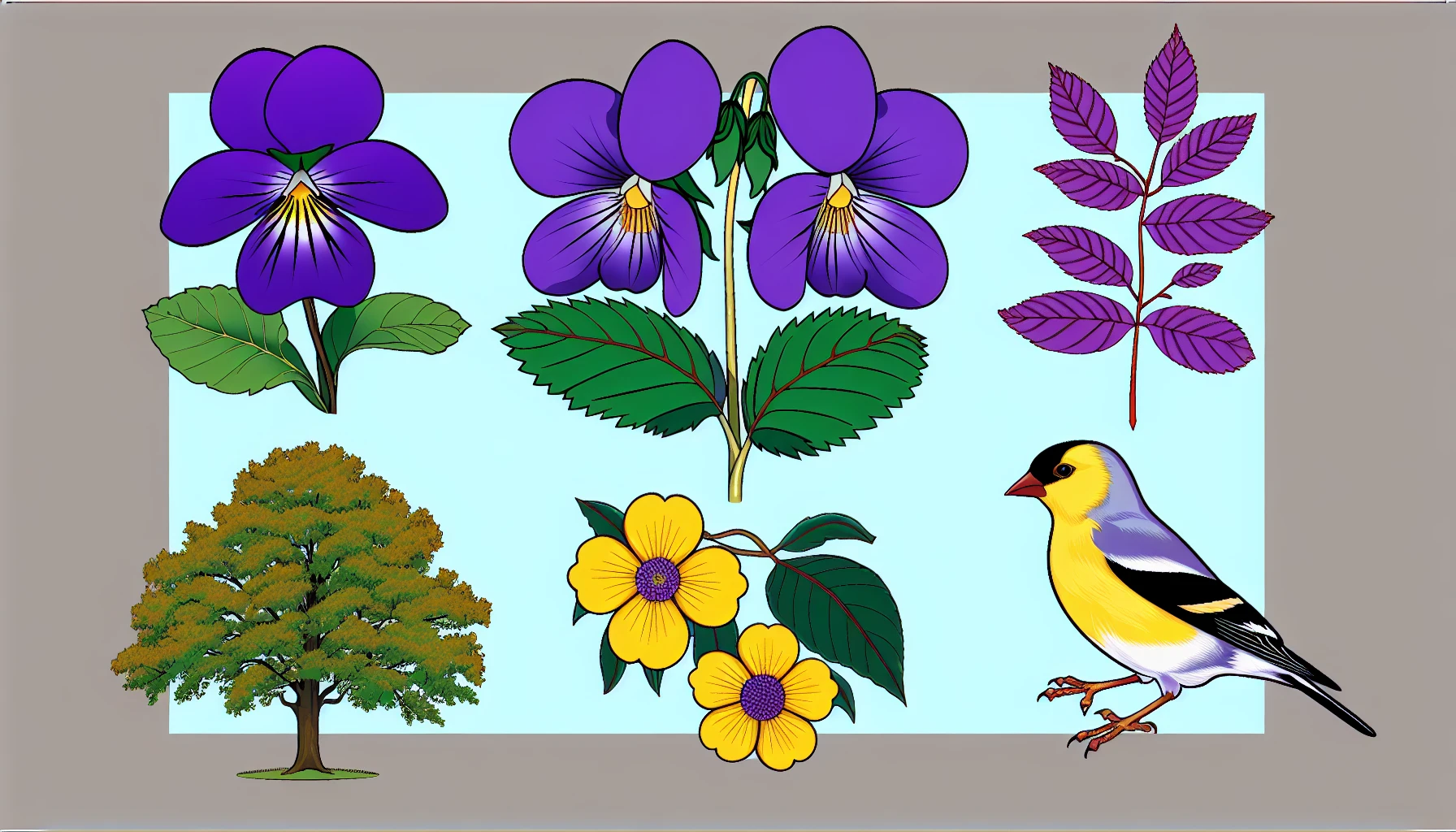
New Jersey is a state filled with natural beauty, and at the heart of it all is the gorgeous Common Meadow Violet, its official New Jersey state flower. Discover the captivating history, symbolism, and care tips for this charming flower, along with other official symbols of the Garden State.
New Jersey State Flower
- The Common Meadow Violet is the official state flower of New Jersey, representing innocence, modesty, and spirituality.
- The Red Oak was chosen as the state tree in 1950 to symbolize strength and beauty, while the Eastern Goldfinch is its official animal.
- Proper care of Viola sororia with regular watering and balanced fertilization ensures optimal growth throughout its blooming season from March to June.
New Jersey's Floral Emblem: The Common Meadow Violet
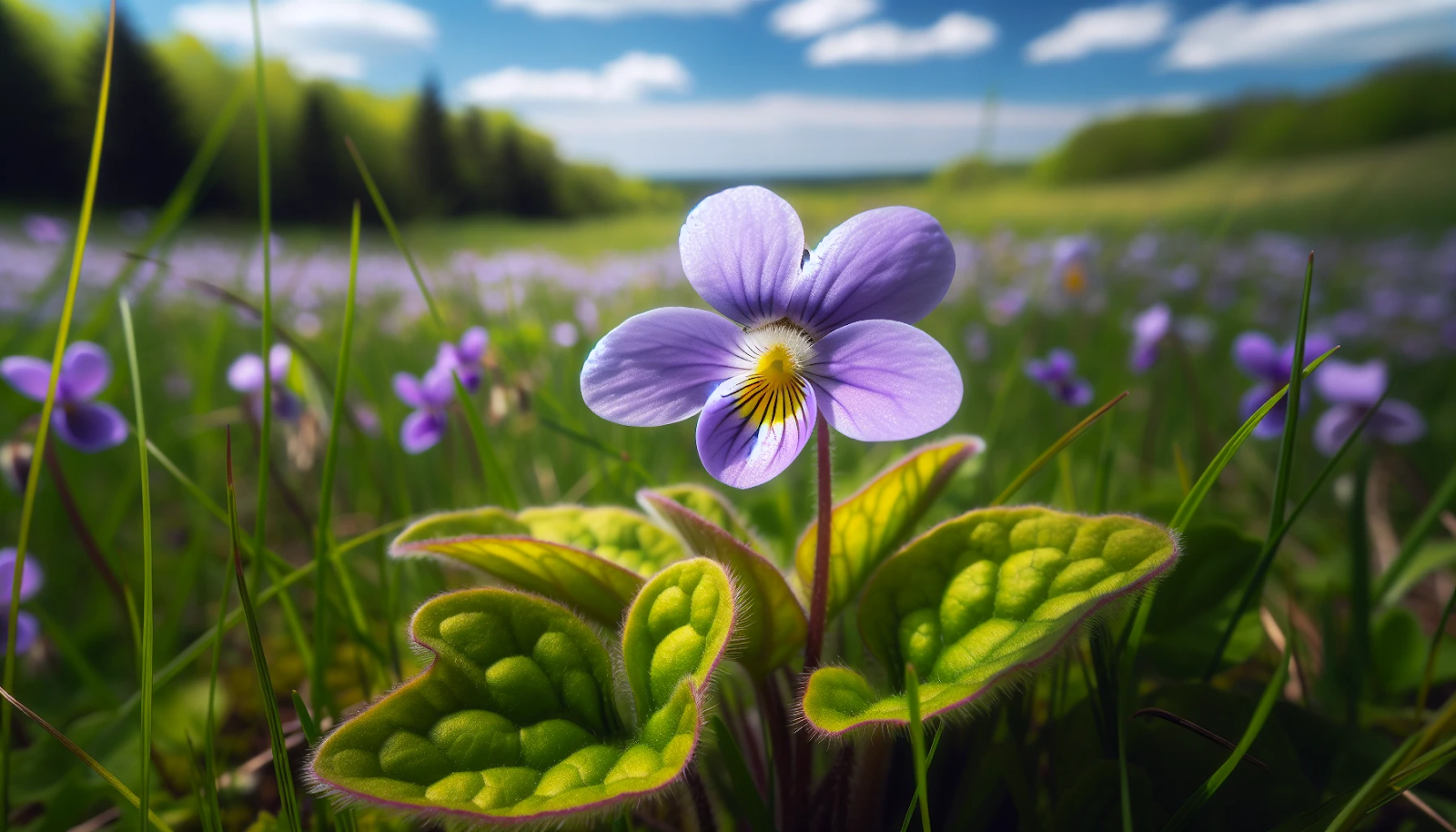
The Common Meadow Violet, also known as Viola sororia, is a significant part of New Jersey’s history. It became the official state flower in 1913. The flower has many names, including:
- Purple Violet
- Woolly Blue Violet
- Hooded Violet
- Wood Violet
The violet carries profound cultural and symbolic connotations, embodying innocence, modesty, and spirituality. These characteristics make it an ideal symbol for the Garden State.
Designation and Adoption
Initially adopted by the New Jersey state legislature in 1913, the Common Meadow Violet’s designation as the Jersey state flower was left ambiguous for 50 years due to the resolution ending with the commencement of the 1914 legislative session. It wasn’t until 1971 that the flower was officially designated as the state flower of New Jersey, the same year the Delaware Bay oyster schooner, A.J. Meerwald, was launched.
This official designation was the result of a public vote, similar to the process used for choosing New Jersey’s state animal, the Eastern Goldfinch.
Symbolism and Cultural Significance
The Common Meadow Violet carries an array of rich symbolism in various cultures. It represents:
- love
- modesty
- innce
- beauty
It is often linked with the commencement of spring and the joys and sorrows of love. In the Victorian ‘language of flowers,’ violets signify delicacy in love, while in other traditions, they symbolize pure love and are associated with the Virgin Mary.
The flower’s spiritual significance includes:
- Modesty
- Humility
- Spiritual wisdom
- Protection against detrimental energies
The violet blooms in the warm spring sunshine, symbolizing new beginnings and growth.
The Beauty of Viola Sororia
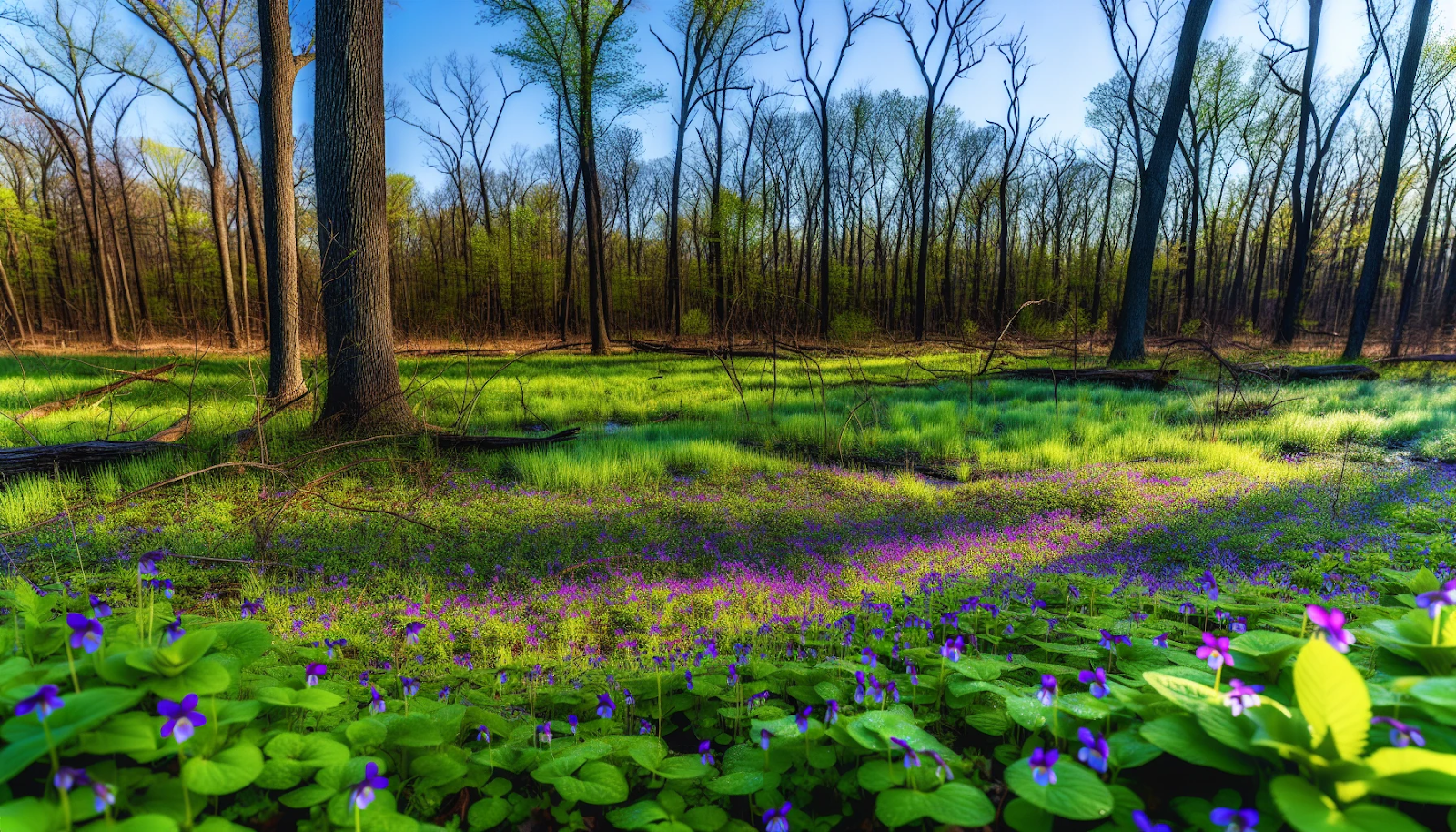
Viola sororia, commonly referred to as the Common Blue Violet, is a captivating flower native to New Jersey. It features heart-shaped leaves and delicate petals with white or yellow spots. This charming flower can be found in various colors, including:
- Blue
- Purple
- Pink
- White
- Red
- Occasionally coral shades
The state shell adds a touch of vibrant beauty to the state’s natural landscape.
Habitat and Distribution
The Common Meadow Violet thrives in its native habitat of damp woods, meadows, and along stream banks throughout New Jersey. It is most plentiful in wet woods, roadsides, and preserves within the state, and its distribution remains consistent throughout the year.
The optimal habitat for this enchanting flower includes meadows, parks, open woods, and yards.
Blooming Season
From March to June, the blooming season for the Common Meadow Violet in New Jersey is a sight to behold. The peak blooms occur in April, with environmental factors such as temperature, rainfall, and climate change influencing the abundance of these lovely flowers.
The warmth of the spring sunshine brings forth an array of vibrant colors, symbolizing new beginnings and growth for both the flowers and those who admire them. It’s during this time that many find warm spring sunshine to be a source of rejuvenation and inspiration.
Caring for the Garden State's Flower
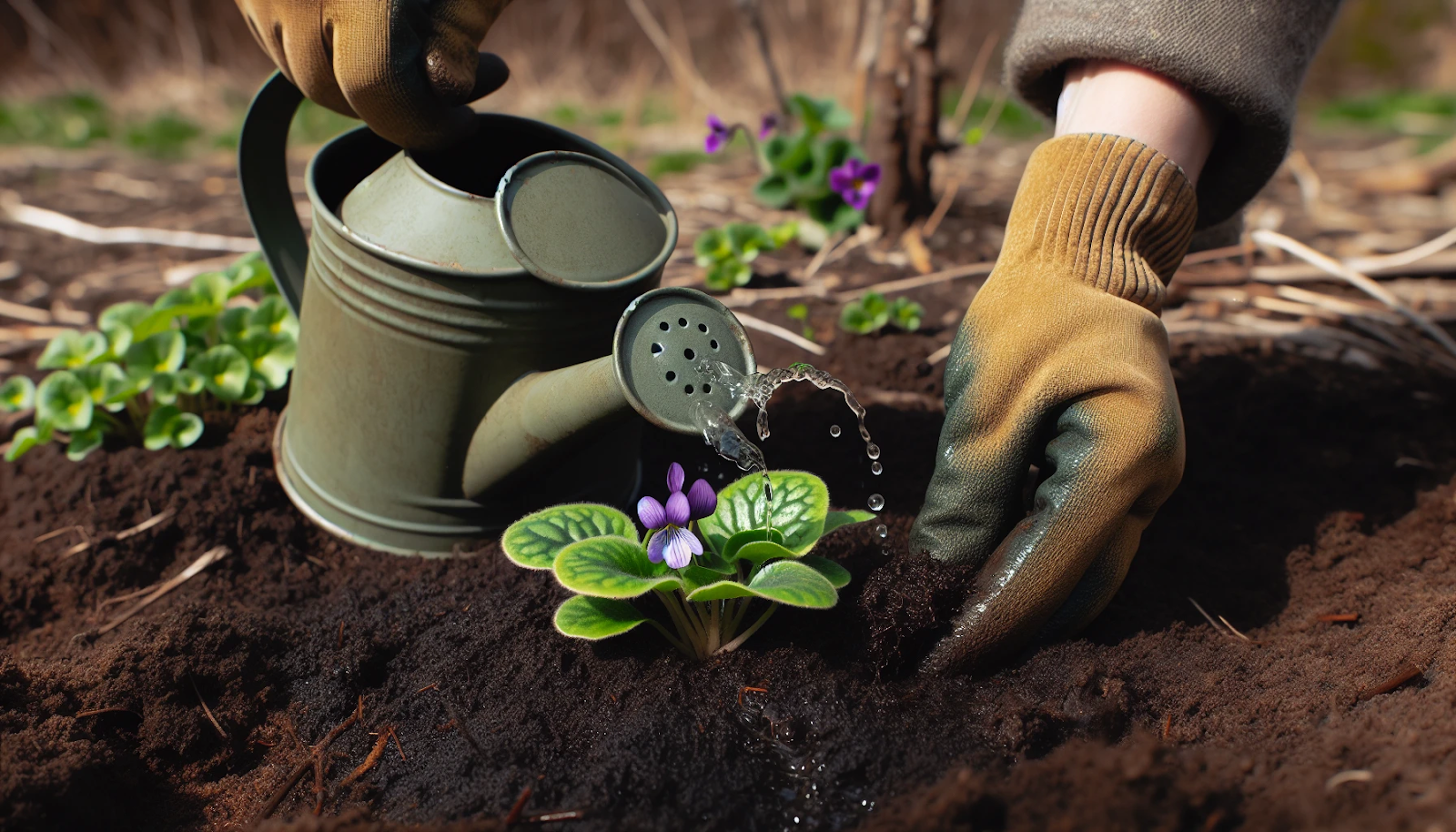
To support the growth of the Common Meadow Violet, the right planting conditions, soil preferences, and appropriate watering and fertilizing techniques should be considered. Proper care of this fragile flower aids in preserving New Jersey’s captivating natural beauty.
Planting And Soil Requirements
For optimal growth, the Common Meadow Violet requires well-draining soil with a slightly acidic pH level. Late March to April is the recommended time for planting in New Jersey.
This captivating flower can prosper in both full sun and light shade, making it a versatile addition to gardens and landscapes.
Watering And Fertilizing
The Common Meadow Violet favors soil that is damp yet well-draining, and it thrives when enriched with organic matter. Regular watering is crucial for optimal growth, and it is best to allow the soil to dry out between waterings.
During the growing season, apply a balanced fertilizer multiple times, particularly during spring and summer, to promote healthy growth.
OTHER OFFICIAL SYMBOLS OF NEW JERSEY
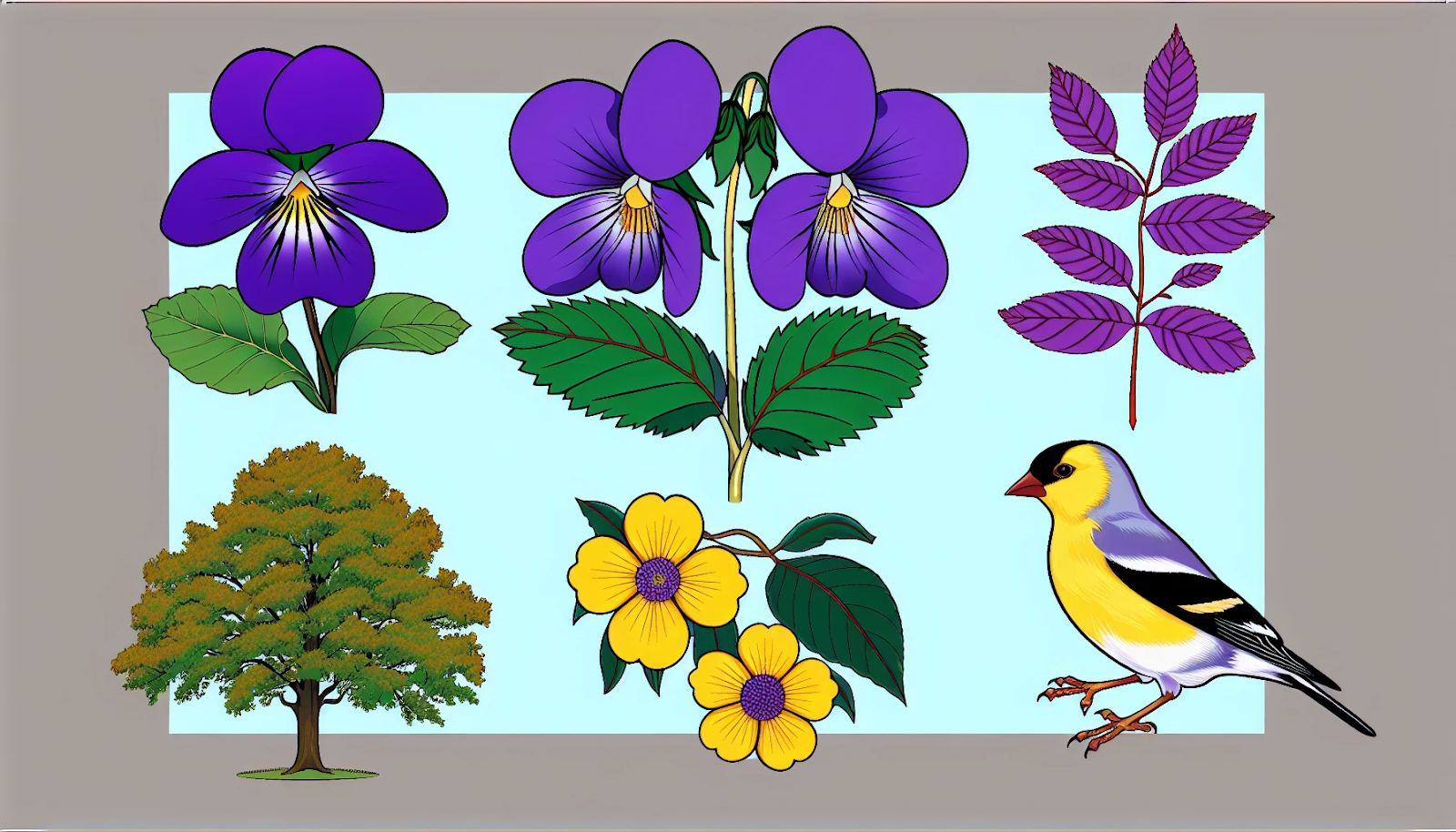
Beyond the state flower, New Jersey also has other official symbols that reflect the state’s diverse history, culture, and natural splendor. The Red Oak, symbolizing strength and endurance, is the Jersey state tree, while the Eastern Goldfinch, recognized for its joyful song, is Jersey’s state animal.
State Tree: Red Oak
The Red Oak, designated as New Jersey’s state tree in 1950, is a large deciduous tree admired for its vibrant fall foliage and strong wood. This hardwood tree holds a special place in the state’s history and culture, representing strength and beauty.
Some Red Oak trees in New Jersey, such as the Poorhouse Lane Red Oak and the great Red Oak in Teaneck, have particular historical importance.
State Animal: Eastern Goldfinch
New Jersey’s state animal, the Eastern Goldfinch, is a small, brightly colored bird that can be found throughout the state. Known for its cheerful song and striking appearance, the Eastern Goldfinch is a symbol of resilience and adaptability, reflecting the history of New Jersey’s settlement.
These delightful birds can be spotted in shrub thickets, hedgerows, overgrown fields, and meadows across the state.
Summary
New Jersey’s official state symbols, including the enchanting Common Meadow Violet, represent the state’s rich history, natural beauty, and cultural heritage. By understanding the significance and care requirements of these symbols, residents and visitors alike can appreciate and contribute to the preservation of the Garden State’s unique charm.
What is NJ state flower and bird?
The New Jersey state flower is the Violet and its state bird is the Eastern Goldfinch, recognizable by its bright yellow body and black cap.
What is New Jersey's state plant?
New Jersey's state plant is the Violet, which was adopted as an official symbol in 1971. It is known to thrive in fields and lawns and can be found blooming in warm spring sunshine.
Why is common blue violet New Jersey state flower?
In 1913, New Jersey school children voted to make the common blue violet the state flower due to its auspicious symbolism. In 1971, the New Jersey State Legislature officially declared it as the state flower.
When does the Common Meadow Violet bloom in New Jersey?
The Common Meadow Violet blooms in New Jersey from March to June, with peak blooms occurring in April.
What type of soil is best for planting the Common Meadow Violet?
The best soil for planting the Common Meadow Violet is well-draining, moist, and slightly acidic with organic matter enrichment.
Recent Posts
Year : 2024
Year : 2023
Year : 2022

